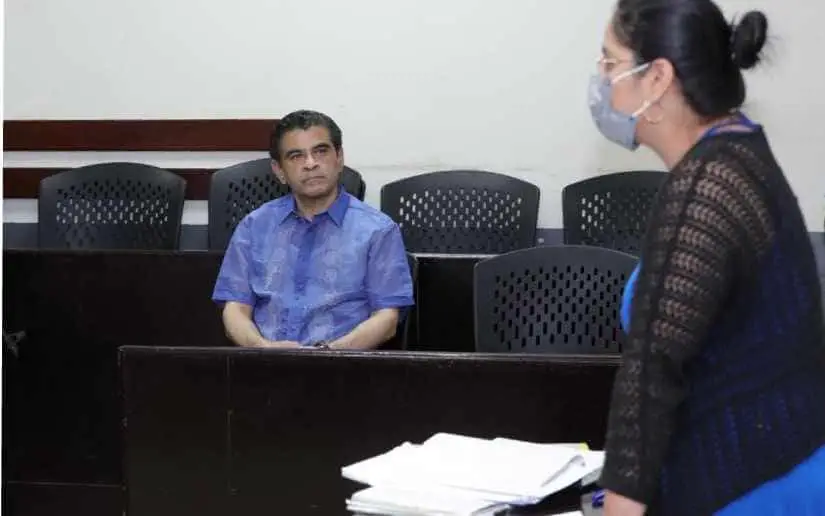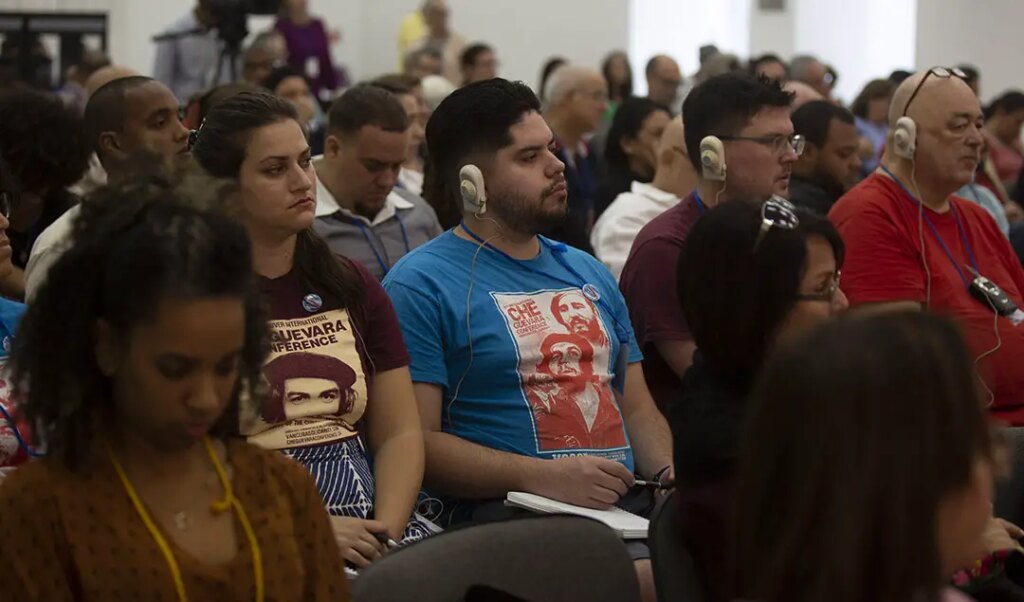Yo
talia fascinates and anticipates futures. It has already been said on occasion in these lines. The boot of the Mediterranean is an unpredictable laboratory from which miracles like Gramsci and Pasolini, misfortunes like Mussolini and ghosts like Berlusconi have emerged prematurely. The country is hard to decode, full of dead-end mazes and red herrings. Well-produced fiction is a more efficient device than the journalistic chronicle to try to unravel the mystery of Italy, if such an undertaking is viable.
The Serie outside night ( sterno night, directed by Marco Bellocchio), which recreates the kidnapping and subsequent death of the leader of the Christian Democracy, Aldo Moro, in 1978, is one of those artifacts, based on real but fictional events, that open the toolbox to access the Italian engine room. Do not hesitate to see it if you have the opportunity, you will want to know more about the nation and its convulsive 70s – where was that decade calm?
The series magnifies the figure of Aldo Moro, for whose life one can end up suffering, despite knowing the outcome in advance, and dwarfs Giulio Andreotti, keystone of Italian politics during the second half of the 20th century. Andreotti was president of the Council of Ministers when they kidnapped Aldo Moro, leader of his party and main supporter of the historical commitment, promoted by the communist leader Enrico Berlinguer, a political opening that made possible a brief collaboration between the main Italian political parties. By the way, Henry Kissinger and the CIA did not like it, as they reminded Moro of the Chilean precedent, according to what Eleonora Chiavarelli, widow of the leader kidnapped by the Red Brigades, recounted on her day. But this is another derivative.
One episode of the series shows, in a memorable sequence, Andreotti walking down long corridors to meet simultaneously, in different rooms, with the parties that support the government, with military and police commanders and with the emissary of Pope VI, who wants to pay a forceful rescue to save Moro’s life. The sequence serves to show the guts of what was the maxim of the Italian State in the face of the challenge posed by the brigade members: they called it fermezza and resulted in a refusal to deal with what were seen as little more than terrorist vermin.
It has rained since then, but Moro’s death and the role of the government and the state during his kidnapping are recurring themes in Italian politics. It is difficult not to remember that inflexible firmness – and probably counterproductive – when seeing the reaction of the government of the far-right Georgia Meloni before the long hunger strike that the anarchist prisoner Alfredo Cospito is carrying out today against the solitary confinement regime.
He is serving a 10-year sentence for shooting a businessman in 2012 and another 20-year sentence against a Carabinieri (police) academy in 2006. The latter could be converted to life imprisonment after a recent reform of the law . Since May he has been classified in solitary confinement 41-bis, in draconian solitary confinement conditions that in Italy were originally designed to prevent imprisoned mafia leaders from communicating with their organizations abroad. He spends 22 hours a day alone in his cell and only receives—recorded—visits once a month.
There is here a first lesson from the Cospito case: any punitive arsenal can be used extensively in the future, regardless of its original motivation. Both the inhuman 41-bis regime and the existence of life imprisonment in the penal code have been the reason for various sentences against Italy in the European Court of Human Rights.
Cospito has been on a hunger strike for 113 days now, drinking only water and some food supplements, which has not prevented him from losing 40 kilos and having to be transferred to a prison with better medical facilities. His reasonable demands have received wide support beyond his ideology, and the echo of the case has spread to Europe. The anarchist militant, who affirms that he will take his protest to the last consequences, has been without food for practically the same time as Meloni at the head of the government.
The closure of the far-right leader is inevitably reminiscent of that maintained by the Italian government with Aldo Moro. The State must not be intimidated by those who think of threatening its officials
Meloni recently expressed. How would the carabinieri, the police, the security agents react if the government, behind their backs and violating the law, negotiated with those who do not respect that same law?
, Andreotti wondered while Moro languished kidnapped. The corpse of his co-religionist, abandoned on May 9, 1978 between the headquarters of the Christian Democracy and the Communist Party, continues to accompany him a decade after his death. Meloni would do well not to forget it and to try to get out, before it is too late, of the impasse that she herself has built.

















